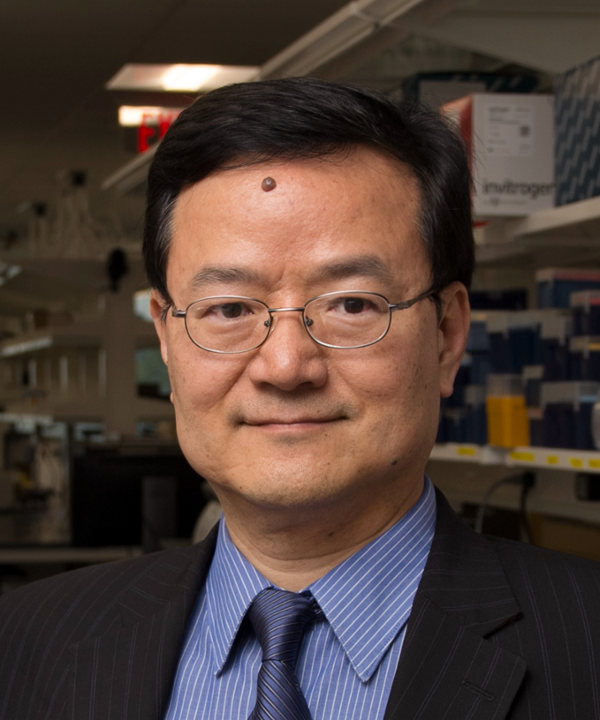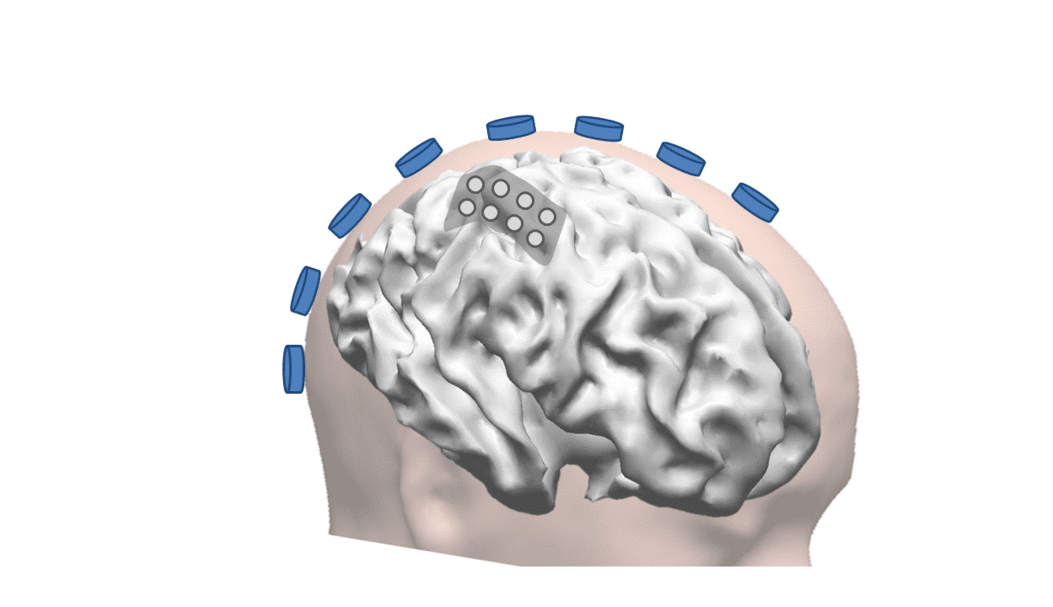
Dr. Bin He
Trustee Professor, Biomedical Engineering, Electrical & Computer Engineering, Neuroscience Institute
- Scott Hall 4N115
- 412 268 9857
- 412 268 3025
Scott Hall 4N115
Carnegie Mellon University
5000 Forbes Avenue
Pittsburgh, PA 15213
Education
-
B.S., Electrical Engineering, Zhejiang University, 1982
-
M.S., Electrical Engineering, Tokyo Institute of Technology, 1985
-
Ph.D., Bioelectrical Engineering, Tokyo Institute of Technology, 1988
-
Postdoctoral Fellowship in Biomedical Engineering, Harvard University - M.I.T., 1991
Bio
Bin He is the Trustee Professor of Biomedical Engineering, Professor of the Neuroscience Institute, and Professor by courtesy of Electrical and Computer Engineering at Carnegie Mellon University. Dr. He has made significant research and education contributions to the field of neuroengineering and biomedical imaging, including functional biomedical imaging, noninvasive brain-computer interface (BCI), and noninvasive neuromodulation. His pioneering research has helped transforming electroencephalography from a 1-dimensional detection technique to 3-dimensional neuroimaging modality. His lab demonstrated for the first time for humans to fly a drone and control a robotic arm just by thinking about it using a noninvasive BCI. He has contributed significantly to neuroengineering education including editing the first textbook in Neural Engineering (1st Edition, 2005; 2nd Edition, 2013; 3rd Edition, 2020), and led multiple NIH and NSF training grants in neuroengineering.
Dr. He has received a number of awards including the IEEE Biomedical Engineering Award, the IEEE BMBS William J Morlock Award, the Academic Career Achievement Award and Distinguished Service Award from the IEEE Engineering in Medicine and Biology Society, the Established Investigator Award from the American Heart Association, NSF CAREER Award, among others. He is an elected Fellow of International Academy of Medical and Biological Engineering (IAMBE), American Institute of Medical and Biological Engineering (AIMBE), Biomedical Engineering Society (BMES), and IEEE. Dr. He served as a Past President of the IEEE Engineering in Medicine and Biology Society, the International Society for Functional Source Imaging, the International Society on Bioelectromagnetism, and as Chair of Publications Committee of AIMBE. Dr. He served as the Editor-in-Chief of IEEE Transactions on Biomedical Engineering from 2013-2018, and during his tenure, the journal's impact factor has nearly doubled. Dr. He has served as the Chair of the International Academy of Medical and Biological Engineering from 2018-2021. Dr. He has been a Member of NIH BRAIN Initiative Multi-Council Working Group from 2014-2019.
From February 2018 to February 2020, Bin He served as the Head of the Department of Biomedical Engineering at Carnegie Mellon University. Over the three years, the department has made substantial progress - research expenditure increased by 60%, PhD student population increased by 50%, graduate underrepresented minority student population nearly doubled, and graduate program ranking increased from the top 26th to the 22nd to the 17th according to US News and World Report. In 2018, Dr. He founded the Carnegie Mellon Forum on Biomedical Engineering series and chaired the first 3 Forums in 2018, 2019, and 2020, respectively.
Research
Professor Bin He’s research is centered around neuroengineering with focus to functional neuroimaging, neural interfacing and neuromodulation. His lab is developing noninvasive dynamic brain imaging technology for studying mechanisms of motor and visual systems, and aiding detection, diagnosis, and management of various brain disorders. An active research project is on developing novel techniques for localizing and imaging epileptic seizures from noninvasive EEG, MEG, and intracranial EEG to aid surgical resection. Functional brain networks are imaged from EEG, MEG and functional MRI to understand brain functions and aid clinical management of brain disorders. A major thrust area of Dr. He’s research is to develop noninvasive mind-controlled brain-computer interface for aiding disabled patients, including developing novel engineering solutions using motor imagery, spatial attention, etc. and develop enabling techniques to make BCI a broadly used assistive technology by the general population.
Research Interests: electrophysiological source imaging; brain-computer interface; neuromodulation; functional neuroimaging; tissue electrical property imaging

Awards and Recognition
- IEEE EMBS William J Morlock Award, 2019
- Chair, International Academy of Medical and Biological Engineering, 2018 - 2021
- Editor-in-Chief: IEEE Transactions on Biomedical Engineering, 2013 - 2018
-
IEEE Biomedical Engineering Award, 2017
- Academic Career Achievement Award, IEEE Engineering in Medicine and Biology Society, 2015
- Distinguished Service Award, IEEE Engineering in Medicine and Biology Society, 2014
-
President, IEEE Engineering in Medicine and Biology Society, 2009 - 2010
- Fellow, AIMBE, BMES, IAMBE, IEEE, NAI